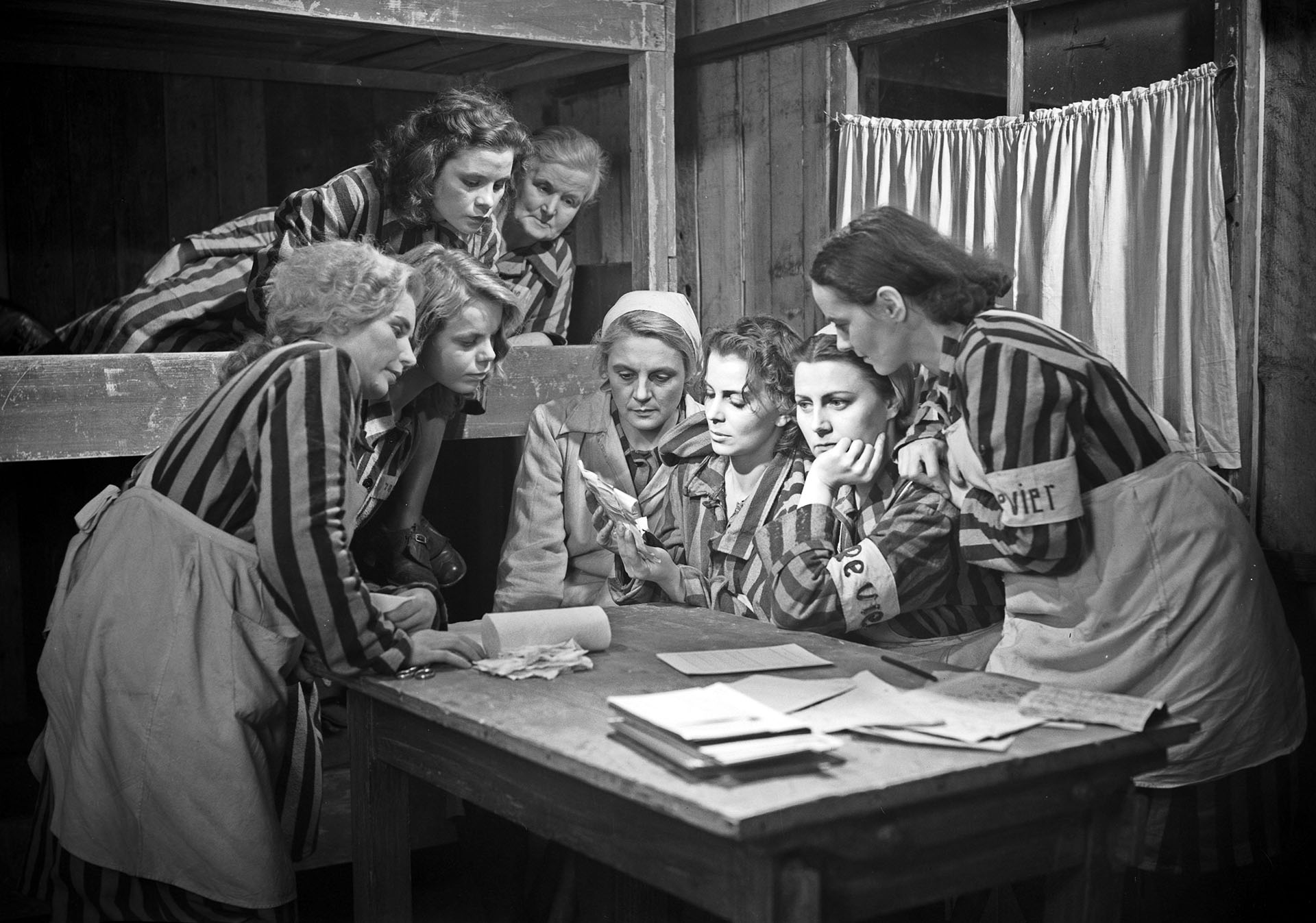
Poland, during World War II. Martha Weiss, a Jewish woman, arrives at the Auschwitz extermination camp with her family. She is assigned the role of interpreter, but her loved ones are much less fortunate.
FILM NOTES
Being one of the earliest feature films to portray concentration camps, Ostatni etap occupies a legendary and unique place in Polish and world cinema, as well as in the filmography of Wanda Jakubowska (1907-1998), Poland’s first professional female film director. Ostatni etap was actually Jakubowska’s re-debut, as her first film Nad Niemnem, completed just before the outbreak of World War II, was unable to have its premiere in 1939 and eventually became a lost work – the negative was hidden away in a Warsaw cellar and is presumed not to have survived the Warsaw Uprising. An equally important autobiographical fact from Jakubowska’s life is that she herself was a prisoner in the Auschwitz-Birkenau camp and years later said: “I probably owe the fact that I’m alive at all to the will to make that film.” Her own experiences, augmented by the camp experience of co-screenwriter Gerda Schneider and the accounts they collected from other prisoners, made Ostatni etap a unique film testimony.
It was shot on location in the Auschwitz-Birkenau camp, in the partially preserved barracks. The actresses wore authentic striped uniforms, and actual German prisoners of war were employed as extras. Jakubowska decided to set the action in the hospital located in the women’s part of the camp. Quite deliberately the narration is not focused on the most horrific aspects of the camp’s regime, but instead on the women’s heroism and resilience. For the director herself, making the film was a form of therapy, allowing her to work through her trauma using the creative process, which was additionally strengthened by her struggle to win the right to make the picture, as it had previously been decided that such an important topic should be addressed by an experienced male director. Unbowed, Jakubowska (an ideological communist throughout her life) went to Moscow to receive a political blessing. After its premiere in 1948 the film began to make its name around the world. Thanks to its restoration, Ostatni etap begins its next stage.
(Iga Harasimowicz)
Courtesy of Cineteca – Il Cinema Ritrovato

